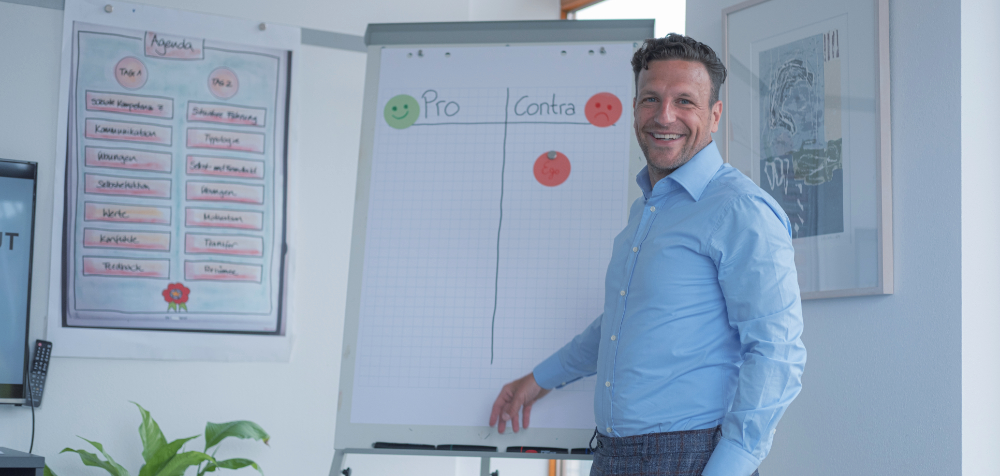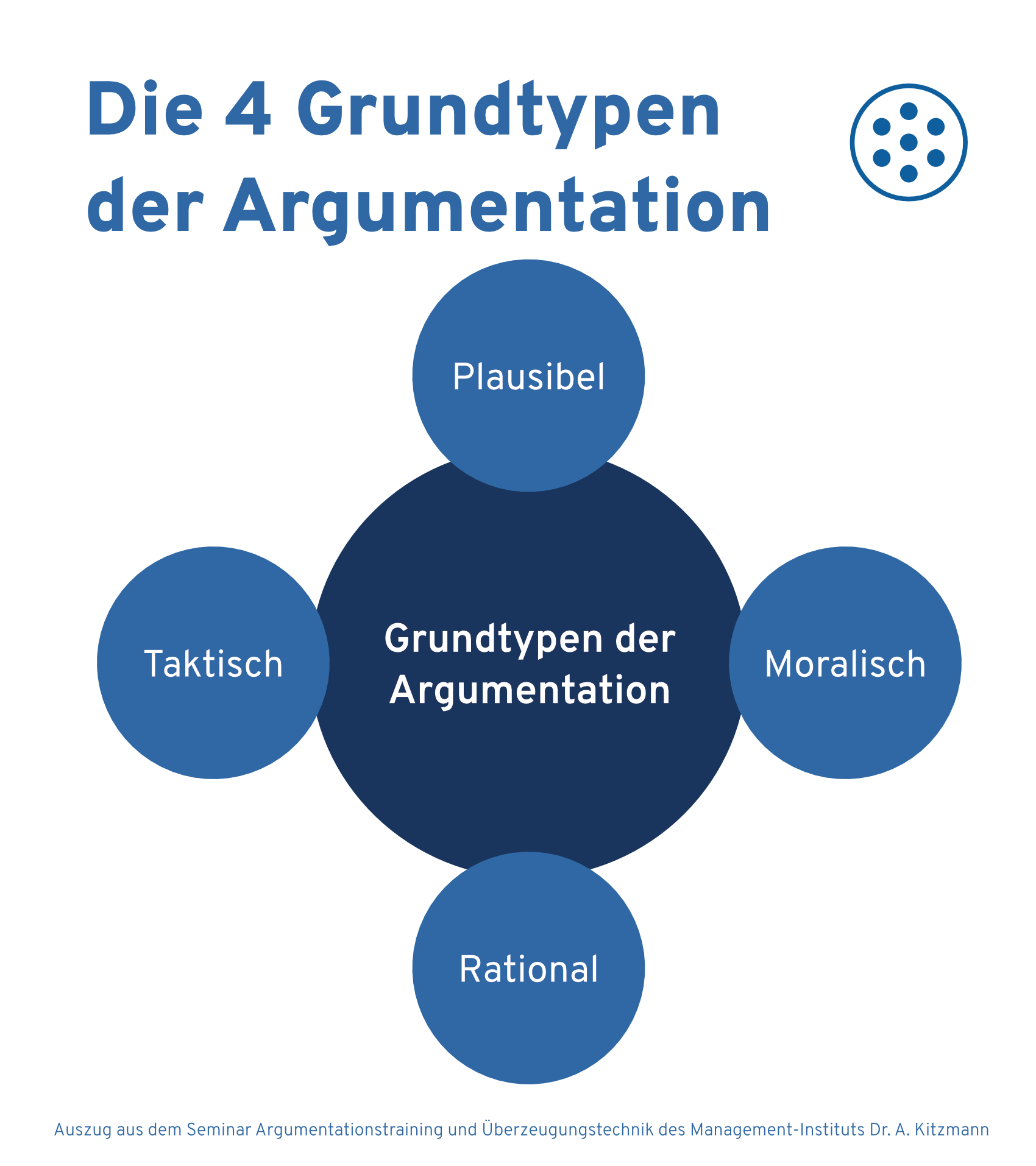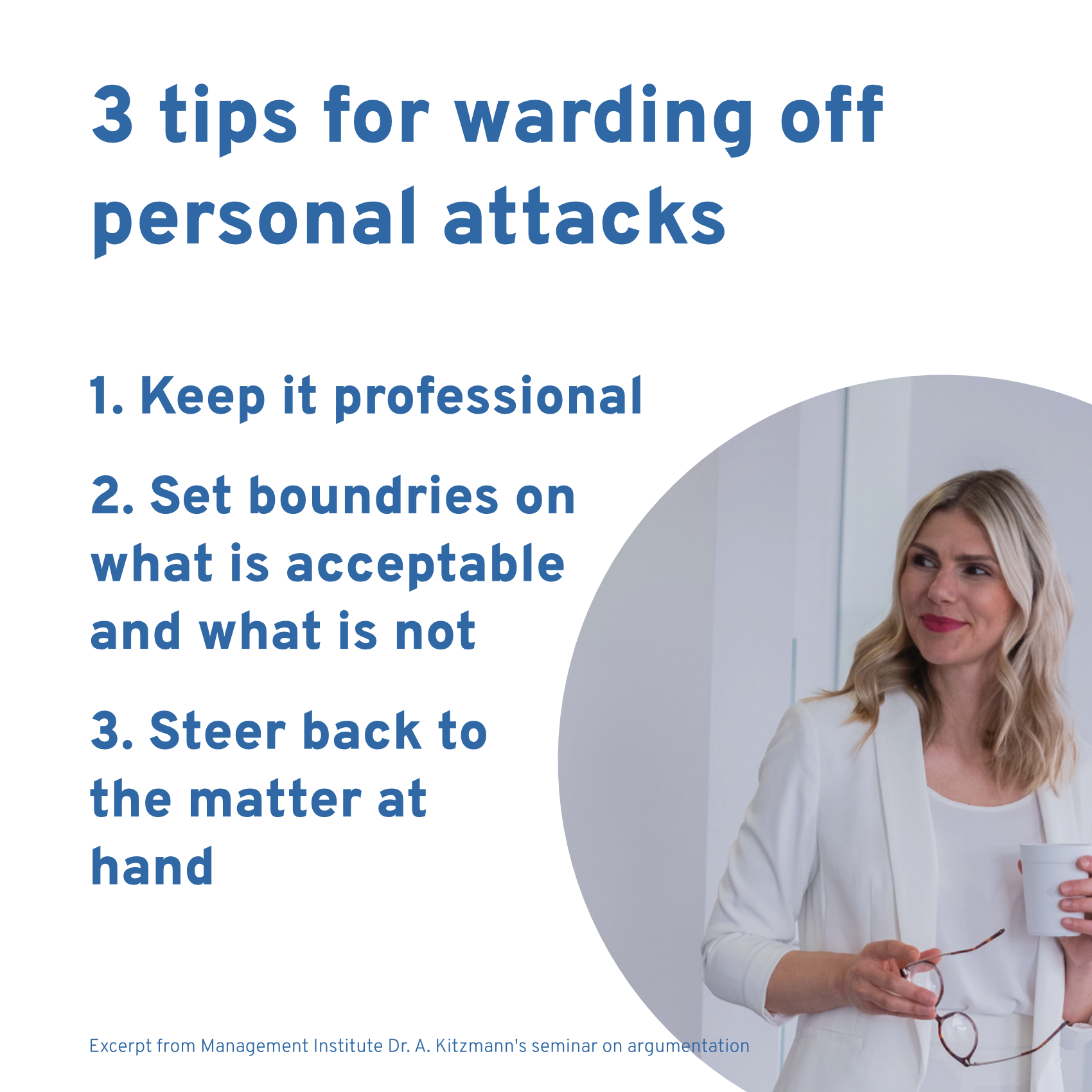
Argumentation techniques: How to win every discussion

In workplace discussions and meetings, effective argumentation techniques are essential in order to defend your position clearly and convincingly. Good argumentation techniques help you to resolve conflicts, avoid misunderstandings and successfully achieve your goals. Below we present the best argumentation techniques that will help you to lead discussions and meetings effectively. You will also learn how to deal confidently with manipulative tactics and unobjective attacks.
What makes a good argument?
A good argument is characterized by clarity, precision and structure. A good speaker bases their argument on sound facts and builds it up logically. This makes it easy for the listener to follow the argument. It is not only crucial to deliver arguments, but also to present them in a way that takes into account the emotional context of the discussion.
A distinction is made between 4 different basic types of argumentation:
- Plausible: This type of argumentation aims to present something as probable or credible
- Moral: Arguments are made on the basis of values, ethics or moral convictions
- Rational: This type of argument is based on logic and reason. It is based on facts, data and deductive or inductive conclusions.
- Tactical: This approach focuses on the use of strategies to persuade the audience.

The best argumentation techniques for discussions and meetings
There are various argumentation techniques that are particularly effective in discussions and meetings:
Refutation:
Refutation is one of the most effective argumentation techniques to invalidate the other person's argument. It shows why the other party's argument is wrong or incomplete and at the same time offers a convincing counter-argument.
A successful rebuttal requires you to listen carefully and understand the other person's arguments. A successful rebuttal strengthens your own position by showing that the other party cannot provide conclusive evidence or is ignoring important aspects.
Evidence:
Another important technique is the use of evidence in your argumentation. By providing your negotiating partner with concrete, verifiable information, you can reinforce your arguments and strengthen your persuasive power.
Evidence in the form of data, studies or relevant facts will help you to refute unfounded arguments put forward by your discussion partner.
Examples:
Giving examples is a technique that makes your arguments clear and tangible. Well-chosen examples can help to make abstract or complex ideas understandable and at the same time help your discussion partner to better understand your point of view.
Anticipation:
By refuting potential counterarguments or objections from your discussion partner before they are raised in the discussion, you strengthen your own position. In this way, you deprive others of the opportunity to influence the discussion and steer it in a different direction.
Challenge:
You can urge your discussion partner to provide concrete answers or reasons by asking specific questions or making a request. This puts pressure on them to clarify their position or take action. This technique is therefore particularly effective when it comes to getting the other person to make a decision.
Tips for dealing with manipulation and unobjective attacks
In any discussion, it can happen that the other party resorts to manipulative tactics or attacks you personally, especially if they can no longer make progress with objective facts. These can derail the discussion if you are not prepared for them. Here are some tips on how to deal with such situations professionally:
- Keep calm: If someone tries to take the discussion to an emotional level, remain calm and objective. A calm attitude shows that you are in control of the discussion and are technically superior to your counterpart.
- Argue on the basis of facts: Manipulative tactics are often aimed at making you feel insecure. Stick to the facts and base your arguments on verifiable information to strengthen your credibility.
- Ask targeted questions: Ask your interviewer for evidence or to explain their arguments in more detail. This not only helps to refute irrelevant arguments, but also to put your opponent on the defensive.
- Clarity and precision: Manipulative participants in discussions often try to blur the course of the conversation and formulate it vaguely. Make sure that you formulate your arguments clearly and precisely in order to avoid misunderstandings and strengthen your position.
- Recognize your opponent's distraction: Manipulative debaters tend to change the subject when their arguments are weak. Recognize such diversionary tactics and steer the conversation back to the original topic.
- Avoid exaggeration: Manipulative interlocutors tend to exaggerate or generalize statements to strengthen their position. Make sure that you question such generalizations and insist on concrete evidence and arguments.

The importance of strong argumentation skills for successful discussions
Strong argumentation skills are the key to successfully asserting your own opinions and goals in discussions and meetings. With the right argumentation techniques, you will be able to lead discussions confidently, refute manipulative tactics used by the other party and arrive at constructive solutions. Seminars on argumentation techniques can help you to develop these skills in a targeted manner and apply them successfully in any discussion situation.